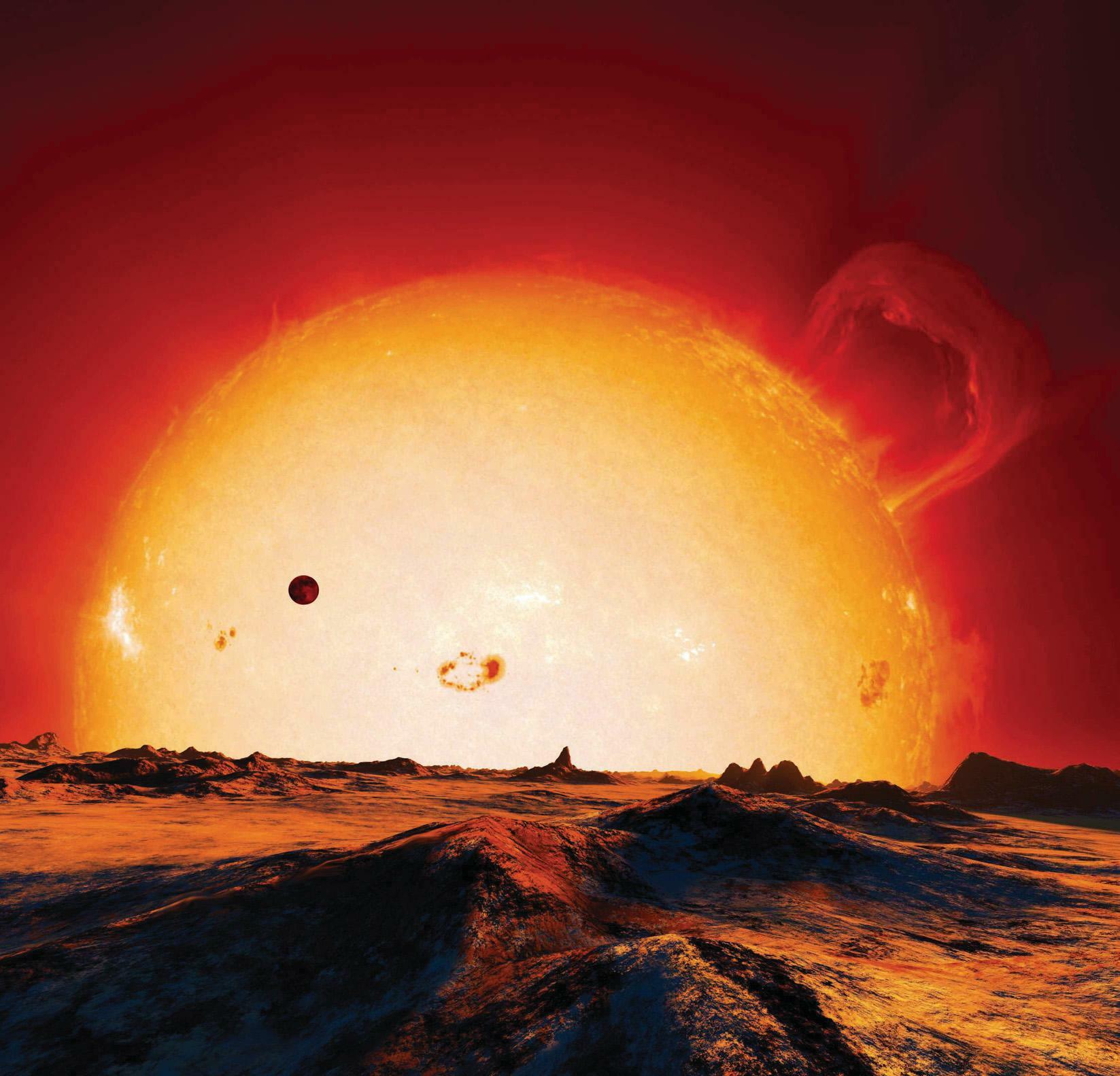HOW THE UNIVERSE WILL END
June 2024
|BBC Science Focus
A colossal supercollider now in the early stages of development may one day help us predict the ultimate fate of the Universe. With it, scientists will be trying to find a hidden instability built into the fabric of existence... an instability that could destroy everything

Most cultures have stories and myths detailing the end of days, from the eventual fate of humans to what will happen to our world and any other realms inhabited by their respective deities. These legends often promise the arrival of a reorganised existence after the cataclysm, a paradise.
But what does modern science have to say about the end of days or to put it in more scientific terms, the end of the Universe?
We know that Earth, if it's not destroyed by us or an errant asteroid first, will likely be incinerated when the Sun expands into a red giant. Luckily, that's not likely to happen for at least another five billion years.
As for the Universe as a whole, do we have any understanding of when and how it will come to an end?
We can look to modern cosmology for some intriguing possible answers. And with the European Organisation for Nuclear Research, aka CERN, currently developing the Future Circular Collider (FCC) a gargantuan 'atom smasher' almost three times bigger than the Large Hadron Collider (LHC) we're one step closer to knowing which one is likely to be right.
FREEZE, CRUNCH OR RIP
In exploring the various theories, it all comes down to the balance between the expansion of the Universe and the pull of gravity. In one scenario, gravity may not be strong enough to stop the Universe from expanding, meaning it'll continue to do so forever.
As all the energy eventually becomes uniformly distributed, the Universe will become darker and colder. Even black holes will evaporate as the Universe becomes a near-vacuum of subatomic particles and photons, an endless and timeless void where nothing ever happens. This is called the 'Big Freeze' (or, conversely, 'Heat Death').
هذه القصة من طبعة June 2024 من BBC Science Focus.
اشترك في Magzter GOLD للوصول إلى آلاف القصص المتميزة المنسقة، وأكثر من 9000 مجلة وصحيفة.
هل أنت مشترك بالفعل؟ تسجيل الدخول
المزيد من القصص من BBC Science Focus

BBC Science Focus
HOW UNLIKELY IS OUR UNIVERSE?
Our understanding of the Universe has revealed that its existence, and indeed our own, relies on a particular set of rules.
1 mins
December 2025

BBC Science Focus
DOES YOUR NAME AFFECT YOUR PERSONALITY?
Research is revealing that nominative determinism isn't as easy to dismiss as you might think
5 mins
December 2025

BBC Science Focus
HOW DIFFICULT WOULD IT BE TO FLY THROUGH THE ASTEROID BELT?
In the 1980 film Star Wars: The Empire Strikes Back, Han Solo and friends try to escape pursuing imperial forces by flying through an asteroid field. Droid C-3PO remarks, \"the odds of successfully navigating an asteroid field is approximately 3,720 to 1\". The scene depicts a chaotic, dense field of rocks swirling and spinning through space. This scenario has been played out many times in the cinema.
1 min
December 2025

BBC Science Focus
HOW CAN I BE MORE PERSUASIVE?
Most of us like to think we're rational people. If someone shows us evidence that we're wrong, we'll change our minds, right? Well, not necessarily, because it's not always that simple. Being wrong feels uncomfortable and sometimes threatening. That's why changing someone's mind is often much harder than it seems.
2 mins
December 2025

BBC Science Focus
This bizarre optical illusion could teach us how animals think
By seeing which animals fall for a classic visual trick, scientists are uncovering how different brains make sense of the world
1 mins
December 2025

BBC Science Focus
LIFE AT THE PARTY
The secret that keeps the superagers so sprightly could be socialising
3 mins
December 2025

BBC Science Focus
AIN'T NO MOUNTAIN HIGH ENOUGH
Could an exoskeleton help you scale every peak with ease? Ezzy Pearson straps on some cyborg enhancements to find out
5 mins
December 2025

BBC Science Focus
A slice across the sky
The green flash slicing through the skies in this shot is a fireball.
1 min
December 2025

BBC Science Focus
TB is surging. Should we be worried?
Cases of the world's deadliest infection are climbing in the UK and US. Why is tuberculosis returning and how do we fight back?
4 mins
December 2025

BBC Science Focus
I survived the worst fire in the history of space exploration and had to keep it a secret
Astronaut Jerry Linenger opens up about one of the worst accidents in space, and the cover-up that followed
1 mins
December 2025
Listen
Translate
Change font size

